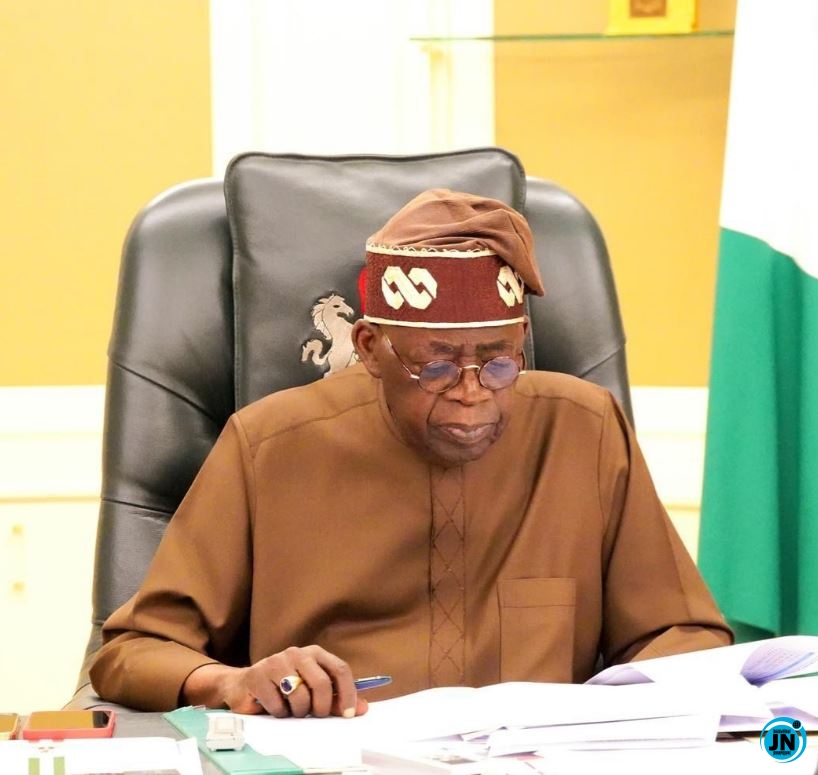President Bola Tinubu has taken a bold step in advancing Nigeria's economic position within the African Continental Free Trade Area (AfCFTA) by approving a significant ₦250 billion readiness fund. This strategic decision underscores the administration's commitment to positioning Nigeria as a dominant player in continental trade and economic growth.
The announcement of this transformative initiative was made on Friday in Abuja by the Nigerian AfCFTA Coordination Office during an event organized by the United Nations Development Programme (UNDP) Nigeria. The event was held in collaboration with the Women Chamber of Commerce, Industry, Mines, and Agriculture (WCCIMA), bringing together key stakeholders to discuss the fund's potential impact.
Speaking at the event, Olusegun Olutayo, Senior Trade Expert at the Nigerian AfCFTA Coordination Office, provided insights into the fund's objectives and the collaborative approach to its implementation. He revealed that discussions are ongoing with the Central Bank of Nigeria (CBN) and the Bank of Industry (BoI) to finalize the modalities for accessing the readiness fund.
“In principle, President Bola Tinubu has approved the AfCFTA Readiness Fund to the tune of ₦250 billion,” Olutayo stated. He further explained, “Although the fund is not yet available, we are actively working on the modalities to ensure its accessibility to Nigerians. The President has directed us to work closely with the CBN and BoI to structure a framework that ensures inclusivity and impact.”

The ₦250 billion AfCFTA Readiness Fund is designed to be a cornerstone of Nigeria’s engagement with the AfCFTA. It aims to strengthen the nation’s business environment, diversify exports, align trade policies with national economic goals, and foster industrial expansion.
Olutayo emphasized that this fund is not limited to large corporations but is also tailored to benefit Micro, Small, and Medium Enterprises (MSMEs), women entrepreneurs, youths, farmers, and major manufacturers. “Our focus is inclusivity, ensuring that Nigerians from all walks of life can participate and benefit from the AfCFTA,” he remarked.
The AfCFTA is poised to create unparalleled opportunities for African economies, targeting a market of 1.7 billion people with a combined GDP projected to reach $6.7 trillion by 2030. This makes it the largest free trade area in the world, encompassing 55 countries of the African Union (AU) and uniting eight Regional Economic Communities (RECs) into a single continental market.
One of the primary objectives of the AfCFTA is to eliminate trade barriers, harmonize regulations, and create seamless cross-border trade opportunities. Olutayo noted that there is a consensus that the Nigerian Customs Service should lead the country’s AfCFTA engagements. He highlighted significant transformations within Customs under the leadership of Bashir Adeniyi, which have positioned the service to play this pivotal role effectively.
Additionally, Olutayo revealed that President Tinubu would soon gazette Nigeria's AfCFTA Protocol, further solidifying the country’s commitment to regional integration and trade optimization.
The event also showcased efforts to empower women-led MSMEs through the HerAfCFTA Forum, which aims to boost the capacity of 100 women entrepreneurs to leverage the trade opportunities presented by the AfCFTA. With the theme “Empowering Women-led MSMEs for Continental Trade Opportunities,” the forum brought together policymakers, business leaders, ecosystem partners, and investors to explore ways Nigerian women can excel in regional and continental trade.
Weyinmi Eribo, Director-General of WCCIMA, highlighted the importance of addressing the challenges faced by women entrepreneurs in cross-border trade. “By tackling these obstacles, we are enabling women-led MSMEs to strengthen value chains, improve productivity, and thrive in high-demand sectors. This initiative is not just about building capacity but also about creating lasting economic impact,” Eribo stated.
Tony Muhumuza, Senior Economist at UNDP, echoed these sentiments, emphasizing the long-term benefits of empowering women entrepreneurs. “At UNDP, we are committed to providing women-led MSMEs with the tools, knowledge, and networks they need to navigate the complexities of AfCFTA. This is about laying a strong foundation for greater participation in regional markets and driving sustainable economic growth across Nigeria and beyond,” Muhumuza said.
The UNDP and WCCIMA collaboration as part of the broader HerAfCFTA initiative aims to equip women entrepreneurs with the resources necessary to thrive in international markets. By advancing their businesses, these efforts contribute to Nigeria’s overall economic integration within the continent and underscore the transformative potential of inclu
sive trade policies.

